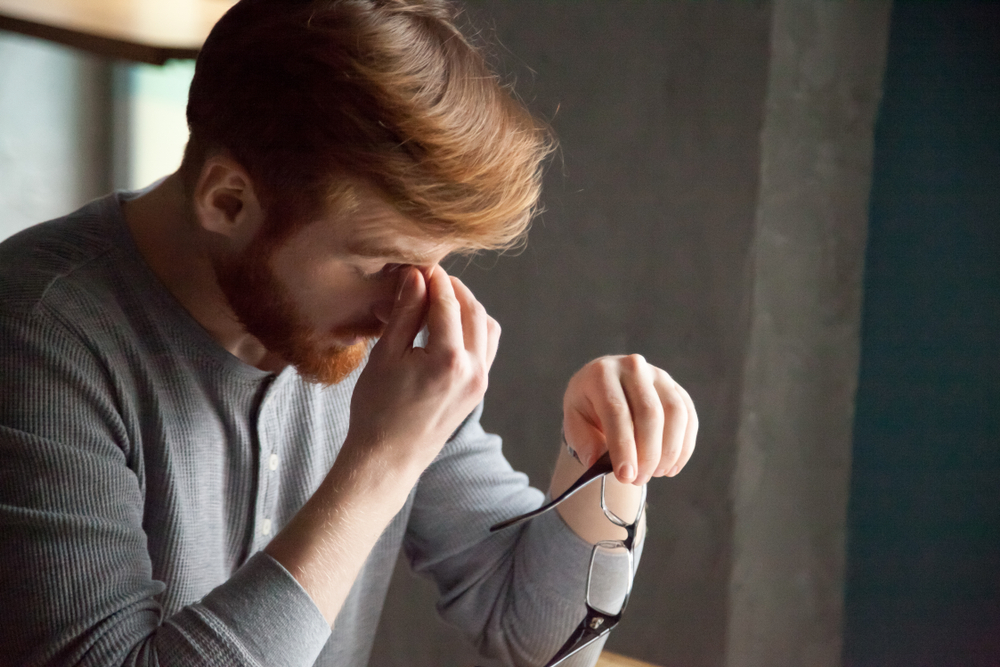As a sector, we came together in 2020 and 2021 with extraordinary responsiveness and resilience, and began this year with the hope 2022 would be better, easier, or at least somehow different. The world had reopened, interstate and international travel was once again possible, and our organisations equipped with new skills to meet artists’ and audiences’ changing needs.
As I wrote in Our Hybrid Future, however, the panic and pivots of COVID-19 had also left our sector fatigued and depleted, and with a problem now being embodied in very particular ways.
Our ‘post’-pandemic workforce is far beyond burnout, with many joining the ‘great resignation’ (sometimes walking out mid-shift) – be that buoyed by low unemployment, fed up with the stress and workloads that follow (and feed into) staffing shortages, or leaving the arts in search of more secure industries.
This is matched by the glaring absence of the lost generation of emerging practitioners unable to join the sector, due to rising education costs and systematic dismantling of industry training streams.
Other ‘quiet quitters’ are working to rule instead – for which we can hardly blame them – given our sector has always relied on our passion and willingness to work over the terms of our contracts. Like many under-resourced sectors staffed by their biggest fans, our work practices regularly sacrifice wellbeing for the sake of ‘the show must go on.’
Burnt-out workplace culture
Personally and professionally, the effects of the last three years are still with us. We’re all (more than) three years’ more exhausted. Nobody is their best selves. And the culture of our burnt-out workplaces are more unpleasant and unproductive as a result.
Artists’ subsistence living conditions have become even more precarious during the pandemic, even as we relied more heavily on their work.
Arts workers have retreated into hyper-independence without the singular focus of pandemic survival – with delayed trauma, resentment and worry manifesting in individual, but remarkably similar ways. And our low emotional capacities mean we don’t initiate or respond to workplace interactions with past levels of professionalism.
CEOs report team dissatisfaction and what they see as entitlement or lack of accountability, as well as poor individual behaviour and more people complaining than problem solving. Just as exhausted as the teams they support, there’s often a lack of awareness that ‘nobody is their best selves’ applies to them too.
I’m not the only consultant having this conversation. Everywhere I go, which means the biggest reassurance I seem to be able to offer, is that everyone’s in the same boat.
‘I’m hearing from people of all genders who are struggling to readjust their management style, as well as their leadership style,’ arts advocate and strategist Esther Anatolitis says. ‘Finding themselves micro-managing, for example, when that had never been an issue before – and at the same time, having no avenue for support, because their Boards lack the professional skills to offer valuable guidance, or fail to understand their duty of care.’
Addressing burnout is a vital business strategy, as well as a legal and ethical obligation.
Kate Larson
It’s lonely at the top
Poor people management (and Boards’ failure to support or supervise CEOs in particular) was one of the key issues identified in my recent arts governance survey, with only 19% of Boards seen to contribute to positive and productive Board and operational culture most of the time.
Unfortunately, at a time when most organisations needed more from our Boards, we saw many step back instead of up, or ask more of their CEOs as if oblivious to their operating context – perhaps forgetting that duty of care is enhanced during times of crisis, not diminished.
Read: Do we need more artists on boards?
‘What I’m consistently hearing is terrible stories of deteriorating board behaviour,’ Anatolitis says. ‘In particular, the worsening behaviour of men of privilege who perhaps didn’t get to have their regular outlets for microaggressions across the lockdown periods. The disrespect, the infantilising, the bullying – all of it has worsened.’
The impact of this trend is very real.
‘I’ve spoken with four established female-identifying arts leaders – amazing women! – who are actively seeking alternative employment either in other sectors, or in roles that do not report to Boards,’ Anatolitis says.
Burnout and duty of care
In a sector that relies on individuals’ passion (and usually takes it for granted), our track record for team safety, wellbeing and culture wasn’t strong prior to the pandemic. The ongoing impact of COVID-19 has made it impossible to overlook these former pressure points and bandaid-solutions.
Now they’re exposed, ignoring them would be nothing short of negligence, a catastrophic failure of our duty of care.
Meeting this duty takes care and time, which feels in short supply – particularly when leaders aren’t at our best either. But getting it wrong takes no time at all, and can have long-lasting impacts on individuals and organisations.
‘Burnout is not a mental illness,’ Melbourne surgeon Dr Eric Levi wrote earlier this year. ‘Burnout is a chronic occupational psychological injury. Burnout therefore is a workplace safety issue’
Unless we consider burnout an issue of workplace safety, we will never move from individual resilience focus to workplace solutions.
Melbourne surgeon, Dr Eric Levi
This means self-care isn’t selfish, and staff care isn’t pandering. Addressing burnout is a vital business strategy, as well as a legal and ethical obligation to create safe and constructive workplaces for our teams.
When is a crisis not a crisis?
By now, we all think we know what ‘crisis’ means. COVID has conditioned us to think of crises as acute, temporary (we hope) tsunamis we don’t have a choice to address – making the hyper-individualised symptoms of this new wave harder to see.
The poor health of our teams and workplaces presents us with a similarly unstable and dangerous situation, and a time of intense risk and difficulty when important decision need to be made.
‘The more engagement I have with organisations and Boards,’ arts consultant and advisor Jade Lillie says, ‘the more I can confirm that most are in crisis – cultural, financial, strategic or capacity. Who is leading the conversation about the future of work in Australia’, and elsewhere?
Lillie continued: ‘What kind of workforce do we want to be? What will it take to ensure the stability and sustainability for people working in such precarious and inequitable industries?’
We need to call a crisis a crisis – and treat it as such.
‘People don’t want to talk about it because they don’t want to let artists and colleagues down, but this is critical,’ Anatolitis says. ‘It’s a ticking time-bomb.’
There’s no way to respond to a crisis without acknowledging it, lawyer and non-profit consultant Sunili Govinnage says. ‘Things will go from bad to worse if we lack the courage to admit there’s a problem, let alone create the space to address it.’
Less is more necessary
In spite of a more competitive funding landscape than most of us have ever experienced, we need to resist the panic to invent more ambitious programs, and instead focus our gaze inwards – or risk there being no-one left to make sure the show goes on at all.
We need to move from a ‘less is more’ to ‘less is necessary’ mindset – and we need to do it now – to support our teams to draw breath, recover and reset. To work out what our new new normal looks like, and what our teams and communities need from us to make that happen.
If we delay until things start to get better, we risk burning out before ‘better’ arrives.
Hear more from Kate about arts Boards, duty of care and rethinking arts governance at AICSA’s Bad, Better and Beyond Best Practice in Adelaide next month.





